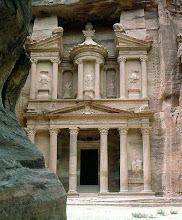While doing a reading for our oral history seminar on Thursday I was immediately compelled to 'spill the beans' about the myriad of ideas swirling through my brain. Michael Frisch's essay The Memory of History from A Shared Authority in which he discusses how memory and history are severed and connected from each other through our recollections, shaping our interpretation of past events. This idea resonated with a long standing historical dilemma I have encountered and have been fascinated and horrified with for many years. Specifically, I am talking about Holocaust deniers! As a Jew, I certainly have my own ideas of what memory and history mean to this particular event. As a Jew with family who both survived and perished in the event, I feel a certain personal connection both to the history, and to the ongoing evolution of its interpretation. A more than casual observer if you will! The ideas purported by Frisch illuminated to me again a great need for historians, both public and academic, to connect collective memories with history.
I read a book once that has ingrained in me this 'holistic responsibility' of historians: History on Trial by Deborah Lipstadt. I believe this book should be a mandatory read for anyone who wishes to eventually call themselves a historian. In this book, she recounts her experience in British Libel court against popular historian David Irving. Irving sued her for libel because she labelled him a holocaust denier (rightfully so!) and in British Libel law, the onus is on the defence to prove what she said was true, unlike in North America where the onus falls upon the plaintiff. The trial in effect (and by the design of Irving) becomes a court case on the existence of the holocaust. I am sure that some fellow historians unaware of this case have had their jaws dropped to floor and rolled back up again in horror. How can you place a historical event on trial, especially one of the most documented events in all of human history? To me, this is where the issue of memory and history really becomes interesting.
Take the thousands of testimonials from both survivors, liberating forces, Nazi officials and any other observing party and you have an extremely rich oral history reserve. What does it all mean? To a global society? To a solitary individual? How can our recollection of the past preserve the history for future generations in spite of a vast reservoir of sources? Years after finishing Lipstadt's book, I still have not come to a conclusion. Again, this idea of memory plays a massive factor, one I have not confronted until this blog entry. If social memory can be altered on a large scale, then history in general can be transformed even despite sources! This is the main objective of Holocaust deniers. Streamline your arguments into one cohesive contention, clear out any ideological biases (it's very hard but they are quite successful) and present it to the public. If they buy even a fragment of the argument, then collective memory over the event in question has been altered. In this almost tit-for-tat trade-off, historical 'truth' can be whittled away to nothingness. However, one rearguard against this form of 'historical murder' is the function of memory of the peoples involved. This is why a digital project, such as the SHOAH Foundation, forms such an important historical function as it preserves these testimonials for future generations to weigh against revisionist interpretations. The scary reality is that sources themselves do not constitute history for those intent on presenting a new history. Hence the importance of always maintaining a strict connection between memory and history. Otherwise who knows what type of future history we might end up with?
I started wanting to talk about memory and history and how they interplay with each other to form understanding. Where I am now I am not really sure. Are my thoughts jarring? Perhaps. Are they disjointed? In this instance almost certainly. I am still left with a decaying feeling in my stomach that despite documentation, commemoration and publication any historical 'truth' can be wiped away and changed forever. All we need is a realignment in our collective memory for an event to change meaning. I am positive this has happened to many events over time as the real event or situation was buried by a collective shift in memory. I feel as though this is a very natural phenomenon and a main reason for the changing face of all historical events over time. As we discussed early on in Digital History class in regards to myths, people will believe anything they want. And in a lot of cases, facts’ repudiating those myths only emboldens the believers. Perhaps this is the source of my anxiety over the issue in question. No matter how many books are written, movies made or primary sources collected, people will simply always be asking the question 'Did six million really die?'
